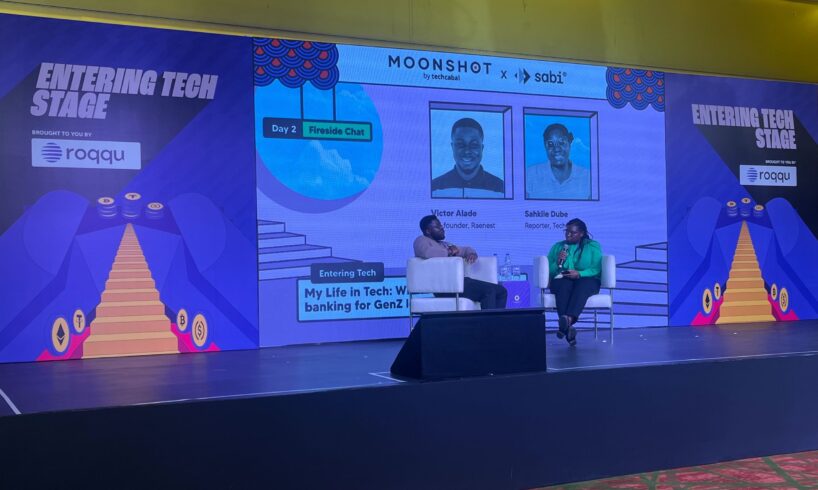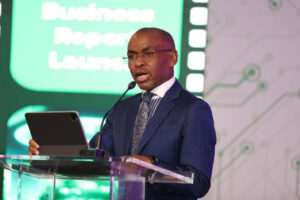
Gen Z entrepreneurs are building the financial infrastructure their generation needs. According to Victor Alade, co-founder and CEO of Raenest, a cross-border payment platform, Gen Z is a pragmatic generation that knows what they want and go after it.
“They grew up with technology. They need things to move as fast as possible,” Alade said during a fireside chat at Moonshot by TechCabal on Thursday, October 16.
Gen Z comprises 31.2% of Africa’s population. More critically, their spending power already equals that of Millennials in Sub-Saharan Africa, with each generation accounting for around 30% of consumer spending. But their relationship with financial services is fundamentally different.
About 36% of those aged 18-24 would choose a fintech service over their traditional bank for online payments.
For founders like Alade, this is not just a statistic but a lived reality. When building Raenest, the goal was not to compete with banks but to solve a personal problem: enabling African freelancers and entrepreneurs to access global payment systems without losing significant percentages in fees.
On the other hand, what distinguishes Gen Z founders is how deeply they embed values into product development. Raenest operates under an internal framework called Raenest Craft, encompassing transparency, reliability, fairness, autonomy, and collaboration.
These aren’t just PR values; they shape product decisions, what features get built next, how the UX is designed, and critically, how fees are structured.
But before any of that comes compliance. “Payment is 80% compliance. The remaining 20% is where the technology comes to play,” Alade explained. “If you’re building a payment system, you have to think about compliance from day one.”
This approach stems from lived experience. Alade’s motivation came from working remotely, waiting five weeks for his salary, only to lose 15% to transaction fees. “I thought about it. I’ve been working for 30 days, why would I be giving someone 15% of my salary?” That frustration became Raenest’s core philosophy: upfront fee disclosure and eliminating hidden costs.
With Gen Z comprising 80% of Raenest’s user base, the company’s product roadmap is driven by data and user feedback. “Consumers are the key. Users are the key,” Alade said. “When we want to launch new features, we have to speak to our users. What do they want? Then we look into our data; what are they spending money on? Where are they spending it?”
This user-centric approach recently led to a complete UX overhaul. “When we started Raenest, the initial purpose was more functionality. We just wanted to get things done,” Alade explained. The redesign focused on usability and accessibility, ensuring users could complete onboarding within seconds, not minutes.
“When it comes to banking for Gen Z, you have to think about speed. You have to think about reliability. They don’t have room for excuses,” he added. “Payment has gone beyond payment, it’s now more of a lifestyle. They want to be in control of their money.”
Today, Raenest processes payments to over 100 countries across the globe, including recent markets like India, with further expansion planned. “Our goal is to put people in charge of their money wherever they are going,” Alade said.
Alade sees AI and blockchain already reshaping financial services. “AI is everywhere. We need to prepare to be able to use AI in the right way. How can we make use of it effectively? How can it make me more productive?” he said.
Traditional banks are trying to catch up by building fintech apps within their systems, but Alade believes fintechs will continue to lead because they focus exclusively on younger, digitally native users who want everything online within minutes, not filling five pages at a physical branch.
The message is clear: Africa’s 428 million Gen Z population, who are mobile-first and globally connected, will shape the continent’s direction in digital banking innovation. For this generation of founders, rethinking digital banking with transparency and compliance at its core is not strategy but necessity.





